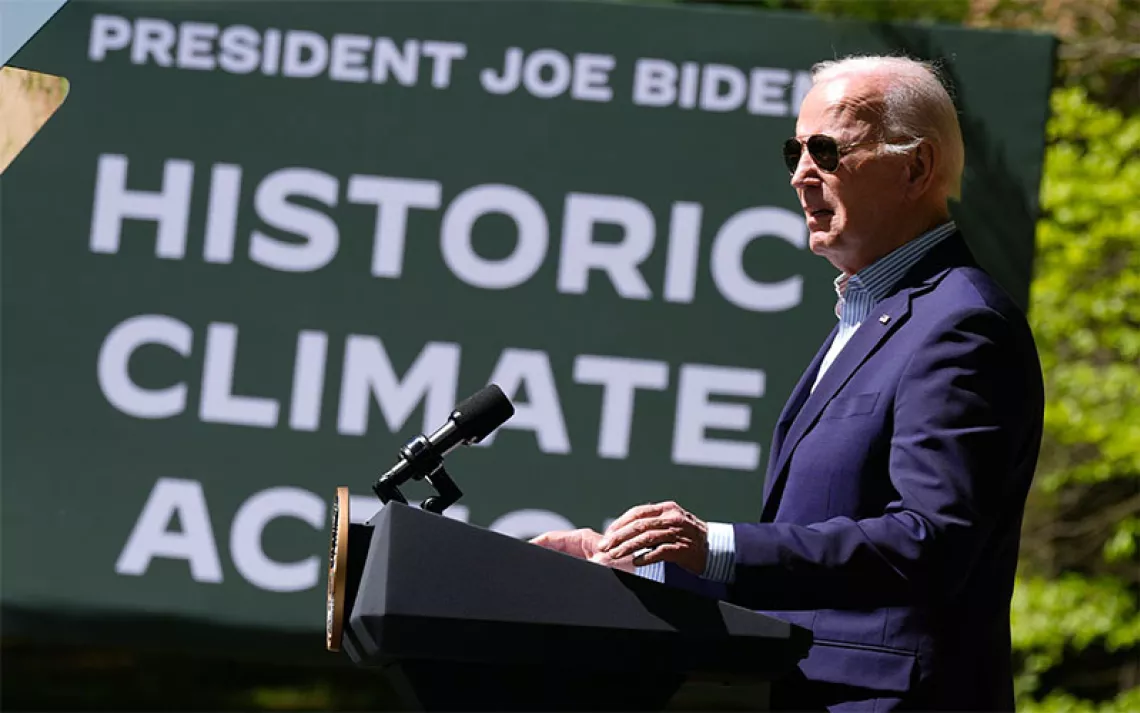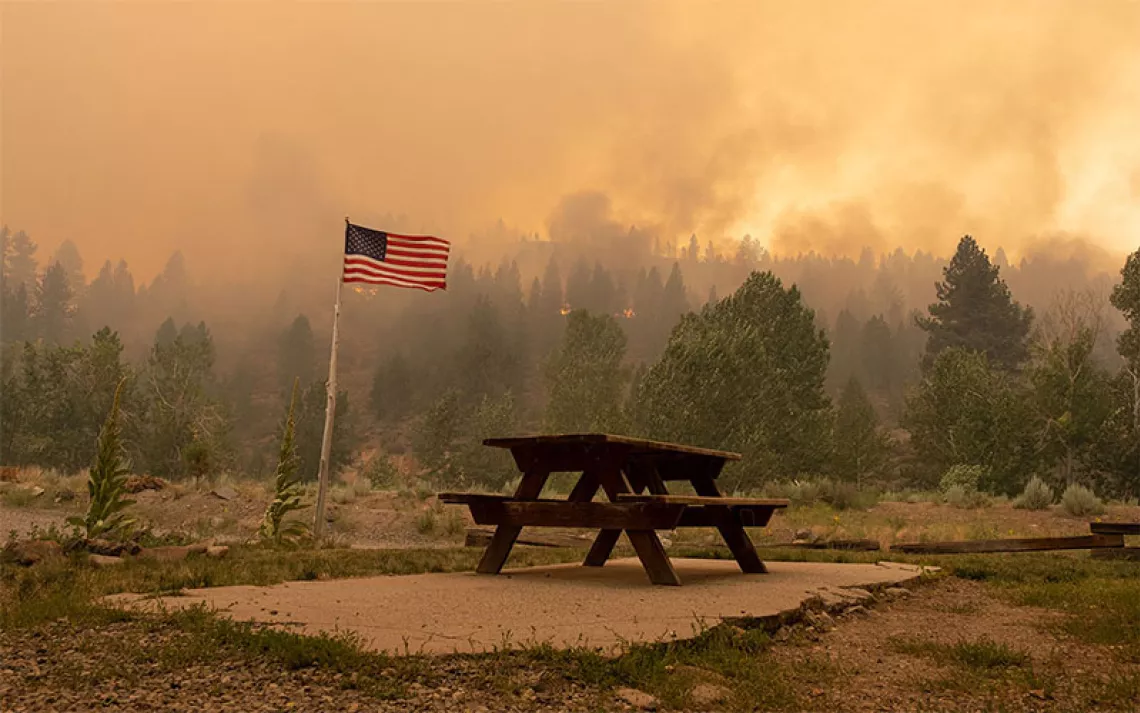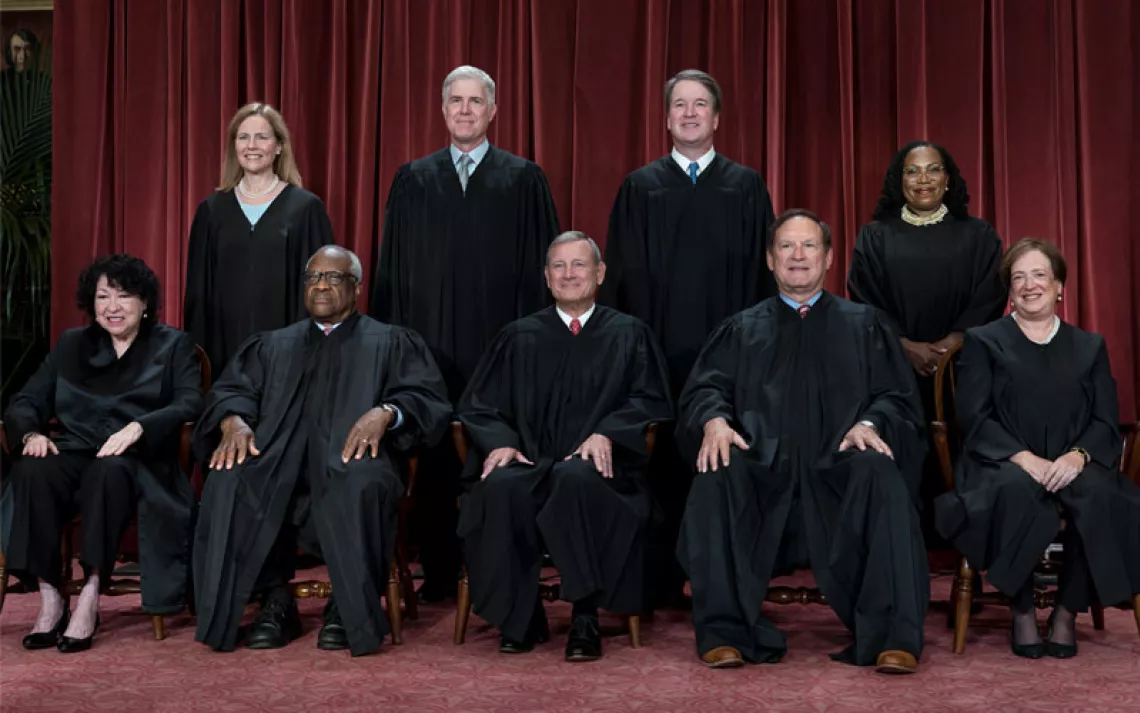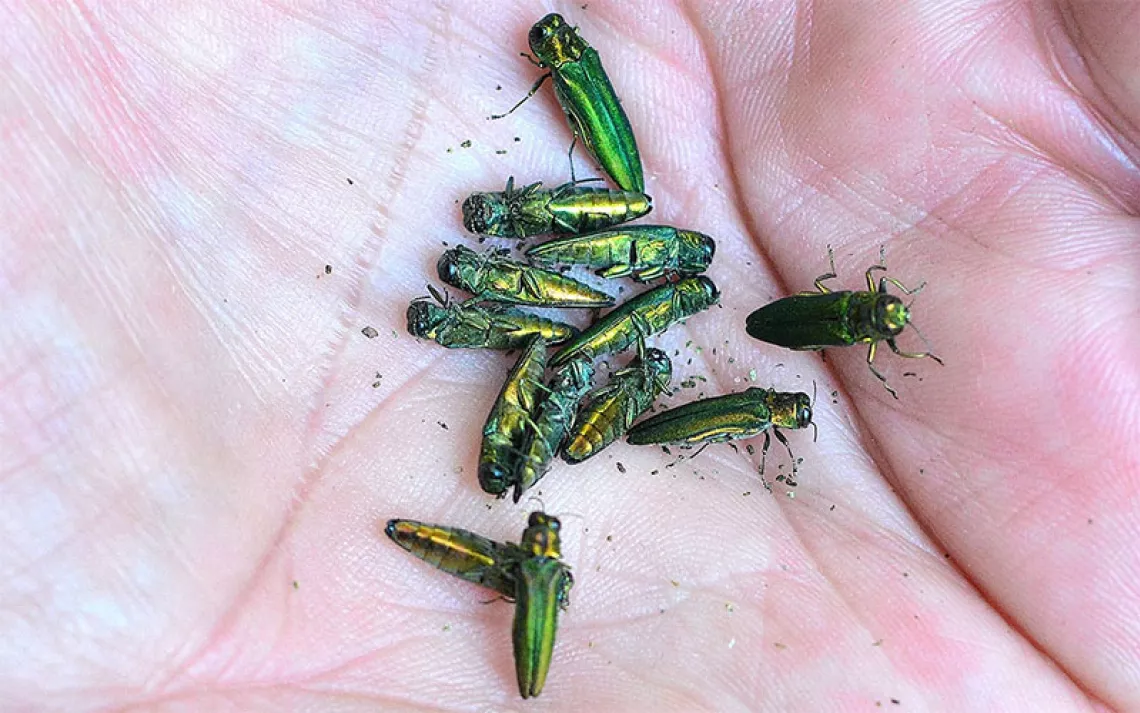How a Climate Bill Became Law
Grassroots power was key to passage of the Inflation Reduction Act
A White House rally seemed like the perfect way to celebrate Earth Day. In April, a thousand people gathered in front of the president's residence for a demonstration demanding the passage of legislation to address the climate crisis. Emceed by Reverend Lennox Yearwood Jr. of the Hip Hop Caucus, the rally drew environmentalists, union organizers, medical professionals, students, and retirees who, together, called on our nation's leaders to finally take bold action to avoid climate catastrophe. "Stop Burning Our Future" read one sign in the crowd; "Invest in Good Jobs" said another. Speaking from the stage, Sierra Club president Ramón Cruz called the legislation "a once-in-a-generation chance to meaningfully tackle the existential dangers presented by warming temperatures."
The White House rally was just one part of the Sierra Club's multiyear grassroots organizing strategy to pass a long-overdue climate law. Even before President Joe Biden took office, Sierra Club staff and volunteers started organizing to contact elected representatives and demand climate action—and our efforts generated thousands of phone calls and emails to members of Congress. I myself spent countless hours phone-banking and text-banking to keep the pressure on our politicians.
In the end (as you now know), our grassroots organizing made all the difference. In August, Congress passed and President Biden signed the first major federal climate change legislation, a suite of policies that will inject hundreds of billions of dollars into the economy to accelerate the transition to clean energy. And yet the final bill came with some ugly compromises and gut-wrenching giveaways to the fossil fuel industry that show how much work we still have to do to protect our communities from harm.
Most of the media coverage of the passage of the Inflation Reduction Act was preoccupied with horse-trading on Capitol Hill. Reporters focused almost exclusively on the negotiations between Senator Joe Manchin of West Virginia and Senate majority leader Chuck Schumer of New York. Such reporting overlooked an important truth: Without community organizing and grassroots pressure, there never would have been the political will to tackle climate change in the first place.
It was grassroots environmentalists who helped craft the original Green New Deal, which inspired elements of the Inflation Reduction Act. It was grassroots environmentalists who voted into office representatives and senators who were committed to making climate change a legislative priority. And it was grassroots environmentalists—along with our allies in the labor movement and public health communities—who turned the Inflation Reduction Act into the law of the land.

Photo courtesy of Shruti Bhatnagar
I am one of those grassroots environmentalists. I grew up in India, in the capital of Delhi, which has some of the worst air pollution in the world. I saw the harms caused by polluted air, as my mother suffered from bronchitis and asthma. We were a family with a modest income, and we didn't always have health care, so sometimes we couldn't afford medical care. My family experienced the injustices of environmental degradation—how the people who do the least to cause pollution are often the ones who suffer from it the most.
I joined the Sierra Club to fight climate change so that my children and future generations will be guaranteed a livable planet and the fundamental right to clean air and clean water. But there's no escaping the impacts of climate chaos, even in a wealthy country like the United States. My children attend college on the West Coast, and some years, they are unable to open the windows or go outside during wildfire season because of the smoke and poor air quality.
My family's story illustrates how global warming affects all of us. And it's the reason I'm committed to continuing to fight for environmental justice. The passage of the Inflation Reduction Act was a hard-won victory. But it's not the end of the story; it's just the beginning of a new chapter of environmental advocacy. There's still much work to be done, and I look forward to doing it—together.
 The Magazine of The Sierra Club
The Magazine of The Sierra Club



